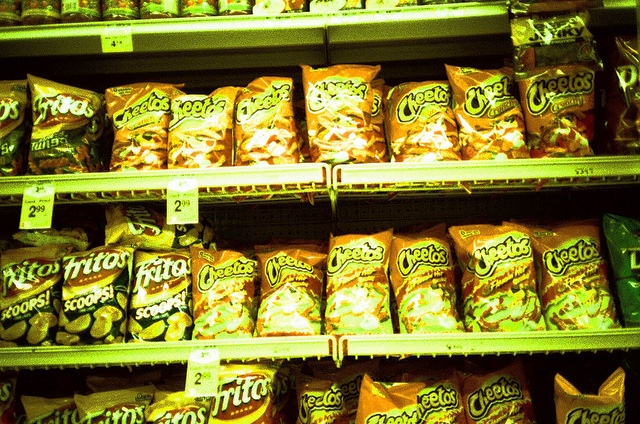Some Illinois Schools Ban Flamin' Hot Cheetos; Children Everywhere Less Orange
By Anthony Todd in Food on Oct 18, 2012 6:20PM
Schools sometimes like to ban silly things—we remember when our school banned slap bracelets in 1994 because they made too much noise in class. But this ban is oddly specific: Schools in Illinois, New Mexico and California are banning Flamin' Hot Cheetos. School officials argue they are bad for kids, possibly addictive, and just plain annoying—the red handprints get everywhere.
Monica Eng at the Tribune wondered if Flamin' Hot Cheetos, the trendy school snack of the moment that inspires "fanatic" loyalty among kids, were actually addictive. She interviewed a Lake View High School student who couldn't stop eating them.
"Once you start eating them, they are kind of addicting, and you can't help it," said sophomore Zian Garcia. "Personally I have been eating them for years, and I cannot stop. I just have this urge to eat them."
Another student, senior Abigail Hernandez, talked about the Cheetos as if they were heroin.
"Eight out of 10 kids bring them to school. And I used to be one of them in middle school. I ate them every day, even for breakfast, and I got really big. There were days when, if my mother didn't buy them for me, I would get so mad. … It took me three months to quit."
There are some physiological reasons to back this up. Snacks that are so high in salt and fat may actually be addictive. These "hyperpalatable foods" trigger the same brain responses in people as addictive chemicals. One small bag of Flamin' Hot Cheetos, by the way, contains more than 25 grams of fat and 1/4 of your daily allotment of salt.
Illinois schools that have banned the snacks include the entire Rockford School District. According to the Huffington post, some schools in California are even confiscating the snack food when packed by parents in a child's lunch.
A Frito-Lay statement emphasized that "Frito-Lay is committed to responsible and ethical marketing practices" and that they don't market to children under 12 years old.
Does banning something like this help kids to eat healthier? Or does it make the contraband more attractive?
